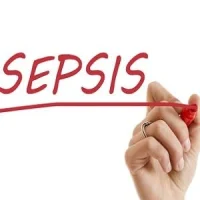Human connection has suffered quite significantly during the COVID-19 pandemic. While physical distancing is necessary for our wellbeing, restricting family presence in the ICU has been challenging.
There is recent data that show the negative consequences of these policies and restrictions. Moral distress has been reported due to restrictive family visitation policies. It is also believed that patients may be spending more time in ICUs because of delayed family conferences regarding care goals, preferences and values.
Recent findings from Kentish-Barnes and colleagues highlight the lived experiences of family members of patients who died during the COVID-19 pandemic. A semi-structured interview was conducted three months after each patient’s death. Many families reported a sense of unreality and feelings that their loved ones had simply disappeared. They also reported their struggle when coping with separation from their loved ones.
Families also report that communication with ICU clinicians was infrequent or inconsistent and was mostly focused on medical information rather than emotional support. However, some families reported a more positive experience and more meaningful connections with clinicians.
Overall, these experiences demonstrate the disruption of human connection during the pandemic. It was necessary for the safety of all parties involved, but it is still important to identify strategies to restore meaningful connections among families, patients and clinicians in the ICU. There is clearly a need to optimise family-centred care in the ICU, even with family members being absent.
Some strategies that can be used include virtual support to provide access to loved ones, allowing families to send comforting personal items to patients, encouraging families to keep ICU diaries to document their experience, established frameworks to allow ICU clinicians to communicate with families for shared decision making and emphatic communication and inquiring about and accommodating end-of-life rituals for dying patients to optimise the quality of death and dying for patients and families
There is a need to urgently implement these strategies so that remote yet high-quality, family-centred care in the ICU can be achieved once again. As more and more people get vaccinated, families may soon be welcomed back into the ICU.
Source: JAMA
Image Credit: iStock










